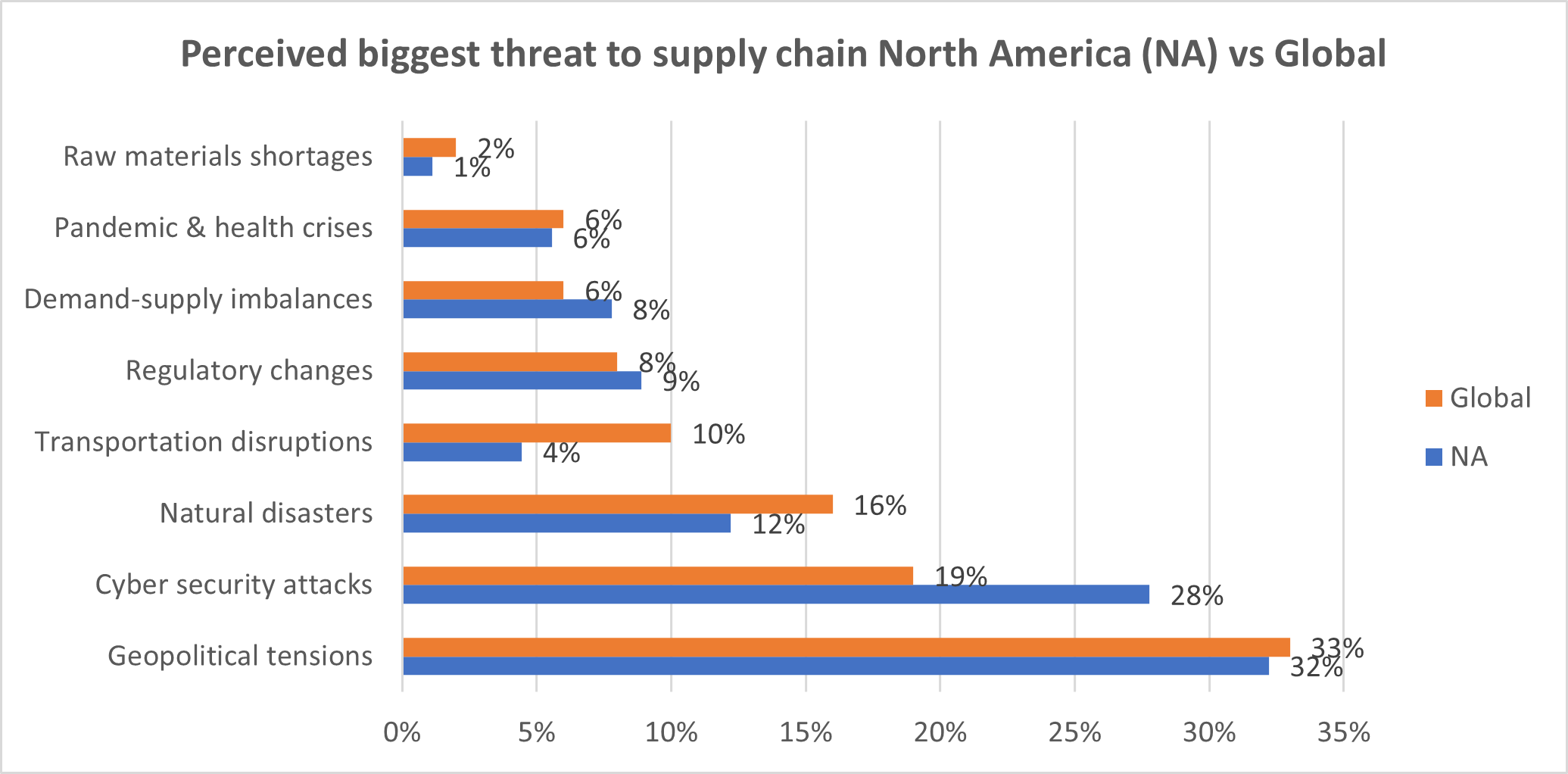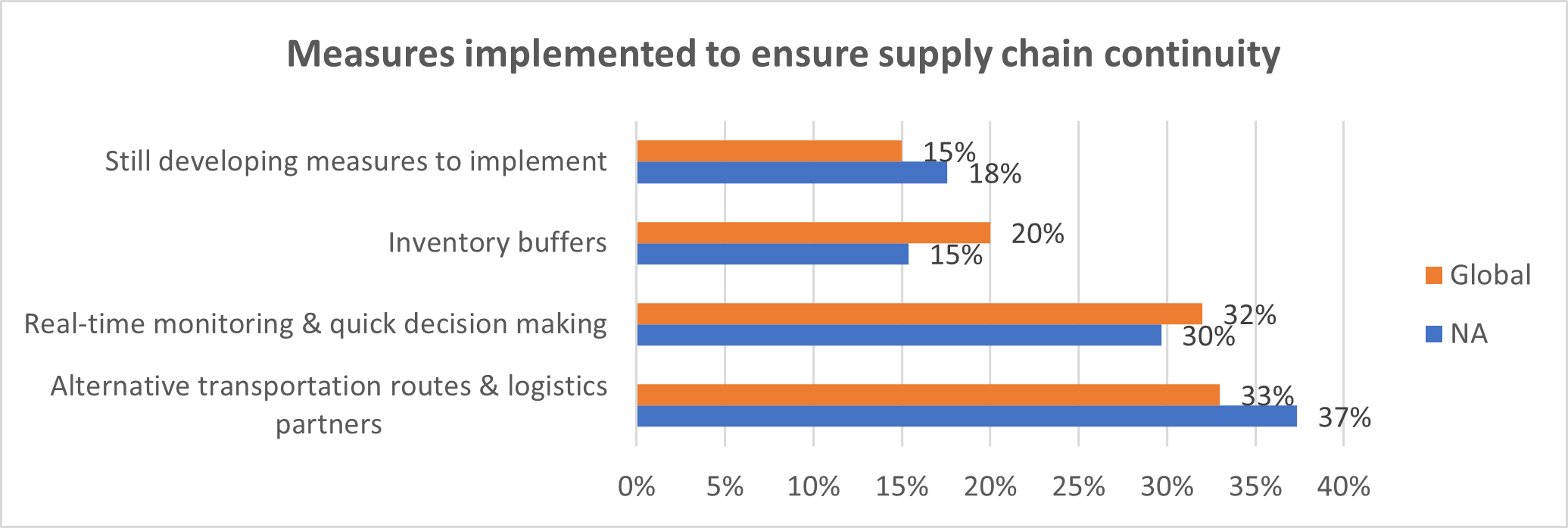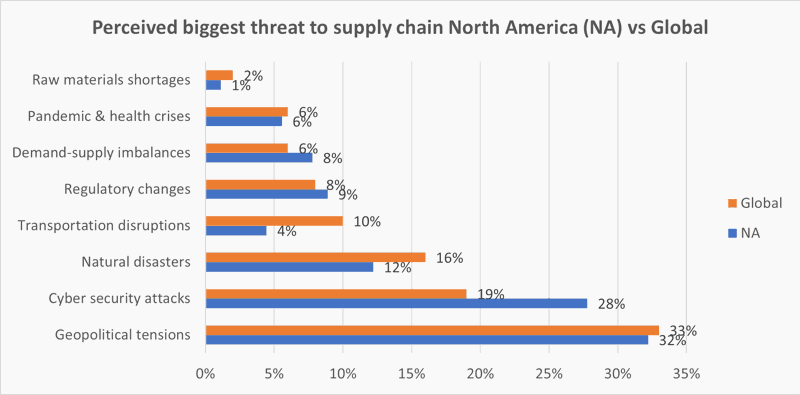- Geopolitical tensions and cybersecurity attacks ranked as top threats to supply chain
- Multi-sourced supply chains and real-time monitoring top measures for continuity
- Only 1 in 3 conduct regular scenario planning around potential threats to the supply chain
- Yet more than half say they are confident or very confident in their recovery plans
IANA Intermodal EXPO, Long Beach, California - Supply chain professionals are diversifying their route and partner network and implementing real-time monitoring for faster decision making to mitigate the impact of geopolitical tensions and cybersecurity attacks. However, a lack of regular scenario planning to test their ability to respond may mean they are overconfident in their ability to recover, finds new research commissioned by CargoWise.
The study, Future-proofing supply chain operations: Leveraging technology for lasting impact, surveyed over 450 logistics and supply chain professionals globally between March-April 2024.
The research found that globally, one in three supply chain professionals cite geographical tensions as the top threat to supply chains, followed by cybersecurity attacks, natural disasters, and transportation disruptions. However, compared to the global average, professionals who have North America as part of their responsibility are more concerned about cybersecurity attacks (NA 28% / Global 19%) and less concerned about both natural disasters (NA 12% / Global 16%) and transport disruptions (NA 4% / Global 10%).

Source: Future-proofing supply chain operations: Leveraging technology for lasting impact
“The global logistics industry is clearly aware of the impact of geopolitical tensions on the supply chain, driven by a combination of ongoing physical threats such as the Red Sea attacks and political tensions with elections in major economies like India, Iran, France, and the U.S. which could see political shifts that embrace protectionist policies and increased trade tariffs. However, operators in North America are almost equally as concerned about cybersecurity attacks, reflecting the escalation of cyber-attacks on critical infrastructure as well as direct personal experience of cyber breaches in their personal lives,” said Gene Gander, General Manager, CargoWise.
To mitigate these concerns, the most common measure being implemented to ensure supply chain continuity is to establish flexible and multi-sourced supply chains with alternative transportation routes and partners – particularly for those responsible for North America (NA 37% / Global 33%)
The other key strategy being implemented to increase resilience is moving from reactive to proactive modes by using real-time monitoring to enable fast decision making, used by one in three supply chain professionals. Approximately half of respondents (48%) expressed a desire to streamline operations across regions through integration and standardization of their technology stack in a unified system. This approach supports better real-time visibility and data accuracy enabling logistics leaders to make more informed decisions.

More than half of respondents (57%) say they are confident or very confident in their recovery plans. Yet only 32% conduct regular scenario planning and 27% admit that they either don’t conduct scenario planning at all, or it is not core.
“True resilience is not a static tick in the box. Threats constantly evolve so businesses must plan for and test their response to a wide range of scenarios. Our research found only one in three supply chain professionals conduct regular scenario planning yet more than half feel confident in their recovery plans suggesting misplaced over confidence. There is a massive opportunity for logistics companies to take a more proactive approach to improve their supply chain continuity in two key ways: rigorous and regular testing of responses to different permutations of likely disruptions; and moving to a unified platform that supports advanced analytics and predictive insights to enable fast decision making to improve responsiveness to market dynamics and disruptions,” Mr Gander explained.
To find out more about CargoWise, including CargoWise Landside, visit booth #413 at IANA Intermodal EXPO, September 9-11 in Long Beach, California.
Download the full report here.
